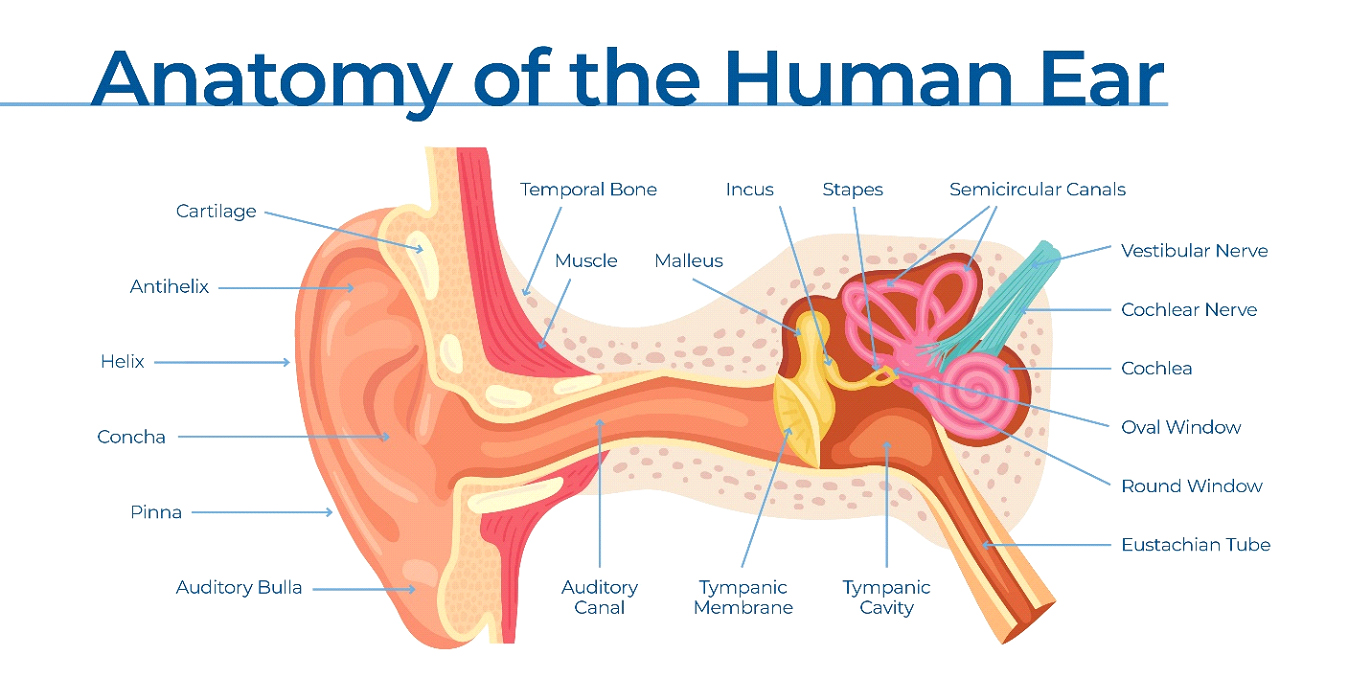Exploring the Anatomy of the Ear
Hearing and understanding are the bridges that connect you to the world, enabling communication, interaction, and the joy of experiencing life’s sounds. Often taken for granted, the gradual decline of hearing can impact your ability to engage fully in daily life.
How We Hear

The Relation to Hearing Loss
Various factors can contribute to hearing loss, affecting different parts of the ear:
Conductive Hearing Loss
Occurs when sound waves are unable to pass through the outer or middle ear due to factors like earwax buildup, infections, or damage to the ossicles.
Sensorineural Hearing Loss
This type of hearing loss is typically related to issues in the inner ear or auditory nerve. Aging, exposure to loud noise, genetics, and medical conditions are common causes.
Mixed Hearing Loss
A combination of conductive and sensorineural hearing loss, often involving issues in both the outer/middle ear and the inner ear.
Impact of Untreated Hearing Loss
Untreated hearing loss can significantly impact various aspects of your daily life, including:
CommunicationStruggles
Understanding speech, particularly in noisy environments, becomes challenging. This can lead to constantly asking people to repeat themselves or nodding along during conversations without truly comprehending. Improved hearing fosters effective interactions, reduces misunderstandings, and restores confidence in social settings.
SocialIsolation
The effort required for listening can lead to withdrawal from social interactions and gatherings, affecting your relationships. Improved communication contributes to stronger connections with loved ones, coworkers, and friends, enriching your social life.
CognitiveLoad
Constantly straining to hear can divert cognitive resources, impacting memory and focus. Research indicates a link between untreated hearing loss and cognitive decline, including dementia. Treating hearing loss reduces the cognitive load, enabling better concentration and memory recall in daily activities.
EmotionalWell-Being
Frustration, anxiety, and feelings of isolation are common among individuals with untreated hearing loss, as effective communication is essential for social interaction. Regaining the ability to hear and engage effortlessly can boost self-assurance and overall self-esteem, contributing to improved emotional well-being.
Enhance your Hearing, Enrich Your Life: Get Started Today
At Hearing Solutions, we understand the profound impact of hearing loss on your quality of life. Our experienced professionals are here to support you on your journey to better hearing. Through personalized solutions and advanced technology, we aim to enhance your hearing experience, restore your connections, and improve your overall well-being.
Contact us today to schedule a consultation and take the first step towards a more fulfilling life with improved hearing.



